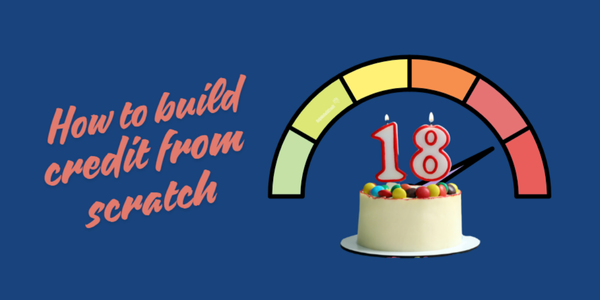Building credit from scratch might feel like trying to get a job without experience—no one wants to give you a chance until you already have a history. But here’s the good news: you can build credit from zero, and it’s easier than you think—if you follow the right steps.
Whether you’re a young adult just starting out, a newcomer to the U.S., or someone looking to rebuild their financial life, this guide will give you everything you need to start building credit from the ground up.
Why Credit Matters More Than You Think
Before diving into how to build credit, let’s talk about why it’s such a big deal.
Your credit score affects:
-
Loan approvals – including car loans, mortgages, and personal loans.
-
Interest rates – better credit often means lower rates.
-
Renting an apartment – many landlords check your credit.
-
Job opportunities – some employers review credit as part of background checks.
-
Utilities and phone plans – poor or no credit might require a deposit.
Your credit score is essentially your financial trustworthiness boiled down into a number. So if you’re starting from scratch, it’s important to lay a solid foundation.
What Is a Credit Score?
Understanding what goes into a credit score helps you know how to build it.
Credit scores, like those from FICO or VantageScore, range from 300 to 850. Here’s what affects your score:
-
Payment history (35%) – Do you pay your bills on time?
-
Amounts owed (30%) – How much of your available credit are you using?
-
Length of credit history (15%) – How long have your accounts been active?
-
New credit (10%) – Have you applied for new credit recently?
-
Credit mix (10%) – Do you have different types of credit (loans, cards, etc.)?
If you’re starting from zero, your mission is to get into the credit system and prove you’re trustworthy with borrowed money.
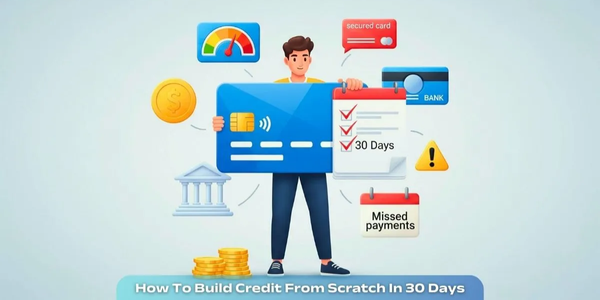
Step-by-Step: How to Build Credit from Scratch
1. Open a Secured Credit Card
A secured credit card is designed for people with no credit history.
-
You provide a refundable security deposit (typically $200–$500).
-
Your credit limit equals your deposit.
-
Use the card for small purchases and pay off the balance in full every month.
Example: You put down $300 for a secured card, use it to buy gas and groceries, then pay it off completely before the due date. That positive payment gets reported to credit bureaus.
Top Secured Cards to Consider:
-
Discover it® Secured
-
Capital One Platinum Secured
-
OpenSky® Secured Visa
2. Become an Authorized User
Ask a trusted family member or friend with good credit to add you as an authorized user on their credit card.
-
You don’t even have to use the card.
-
Their positive payment history gets added to your credit report.
-
No credit check is needed.
Pro Tip: Make sure the card issuer reports authorized users to the credit bureaus. Most major issuers do.
3. Apply for a Credit-Builder Loan
A credit-builder loan is a small loan (usually $300–$1,000) that you repay over 6–24 months.
-
The money is held in a secured account while you make payments.
-
Once you finish, you get the money—and positive payment history on your report.
Where to find them:
-
Local credit unions
-
Online lenders like Self or SeedFi
Real-world example: Maria, a recent college grad, took out a $500 credit-builder loan with her credit union. After 12 months of on-time payments, her credit score jumped from 0 to 680.
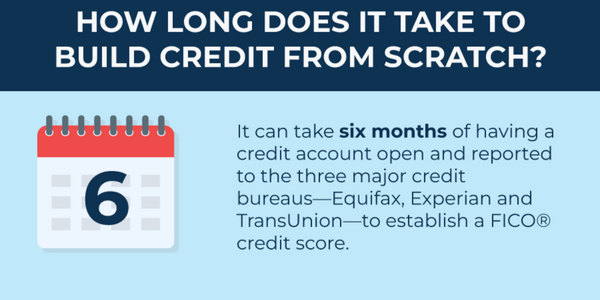
4. Report Rent and Bills to Credit Bureaus
Normally, paying rent and utilities doesn’t impact your credit—but there are services that report your rent payments to the bureaus.
Use services like:
-
Experian Boost (for utilities and phone bills)
-
RentReporters or Rental Kharma (for rent)
-
LevelCredit (for rent, utilities, and even Netflix)
This won’t instantly skyrocket your score, but it can fill out a thin credit file.
5. Keep Your Credit Utilization Low
Once you have a credit card:
-
Don’t max it out.
-
Aim to use less than 30% of your credit limit—ideally under 10%.
Example: If your limit is $500, keep your balance below $150.
High balances—even if paid off—can hurt your score because they signal risk.
6. Pay Everything On Time—Always
Late payments are the #1 credit killer.
Set reminders, autopay, or calendar alerts to never miss a payment. Even one missed bill can tank a young credit profile.
Tip: Even paying the minimum payment on a credit card is better than missing a due date.
7. Diversify Your Credit Over Time
Once you’ve established some credit, consider adding different types:
-
Installment loans – like student loans or car loans.
-
Revolving credit – like credit cards.
A healthy mix shows lenders you can manage various kinds of debt.
But be cautious: only take on credit you can afford to repay.
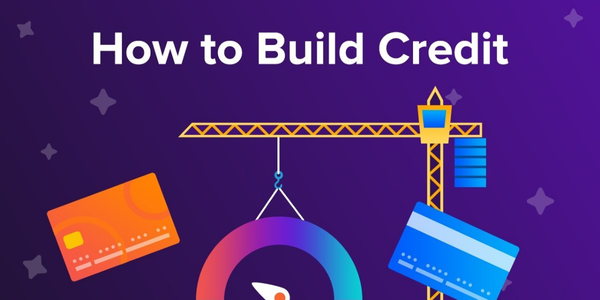
How Long Does It Take to Build Credit?
If you’re starting from zero, you can get a credit score within 3–6 months by using a credit product that reports to the bureaus.
To reach a good credit score (670+), it typically takes 6–12 months of:
-
On-time payments
-
Low credit utilization
-
Responsible credit behavior
Good things take time—but progress is measurable within the first few months.
Common Credit-Building Mistakes to Avoid
Here are traps to steer clear of when you’re building credit:
❌ Applying for too many cards too fast
Each application triggers a hard inquiry, which can lower your score temporarily.
❌ Carrying a balance to “build credit”
You don’t need to carry debt. Just use the card and pay it off. Interest = money lost.
❌ Ignoring your credit report
Check it regularly for errors. Use:
❌ Closing old accounts
Older accounts help your credit age. If there’s no fee, keep them open.
Tools & Apps That Help You Build Credit
Here are some digital helpers to streamline your credit-building journey:
| Tool | What It Does |
|---|---|
| Self | Credit-builder loans and credit monitoring |
| Experian Boost | Adds utility/phone bills to your credit |
| Credit Karma | Free credit scores and tips |
| Mint | Budgeting and bill reminders |
| Petal Card | Credit card for people with no history |
These tools can simplify your journey and help you track your progress.
Real-Life Story: How Jake Built Credit from Zero to 700
Jake, a 19-year-old college freshman, had no credit history. Here’s what he did:
-
Opened a secured card with a $300 deposit.
-
Used it for groceries and gas only.
-
Paid it off in full every month.
-
After 5 months, applied for a student card—and got approved.
-
Set up Experian Boost to add his cell phone payments.
12 months later, Jake’s credit score hit 703. He’s now pre-qualified for an auto loan with great rates—all by starting smart.
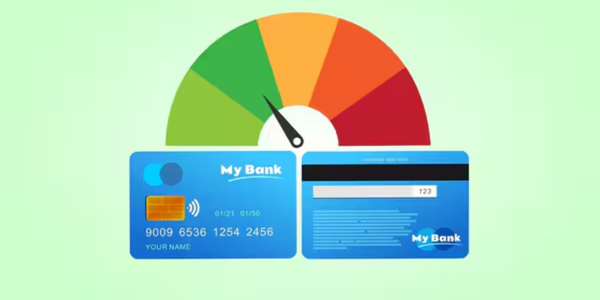
Final Thoughts: You Can Build Credit—One Step at a Time
Building credit from scratch isn’t magic. It’s about consistency, responsibility, and patience.
Take it step by step:
-
Get a secured card or builder loan.
-
Use credit lightly and wisely.
-
Pay everything on time.
-
Monitor your credit and stay informed.
Whether you want to buy a car, rent an apartment, or just have financial freedom, your credit is the key—and you can start building it today.
🚀 Ready to Build Credit? Start Here:
-
Leave a comment if you have questions or want to share your story.
-
Check out our related guide: Top Credit Cards for Beginners
-
Use our free checklist: Credit Building Starter Kit (PDF)
